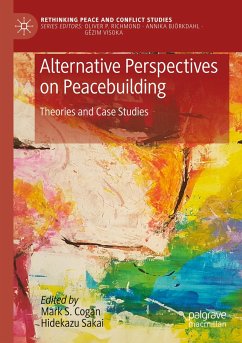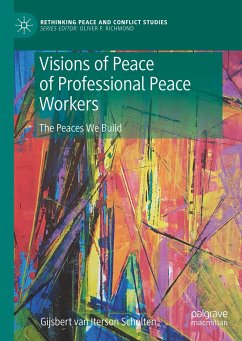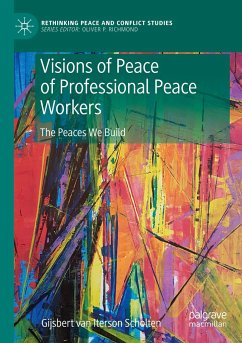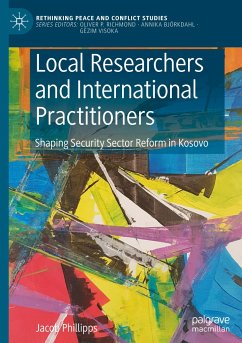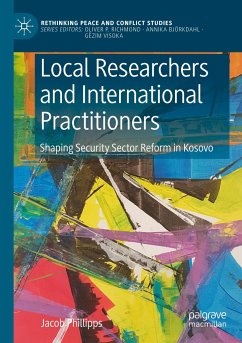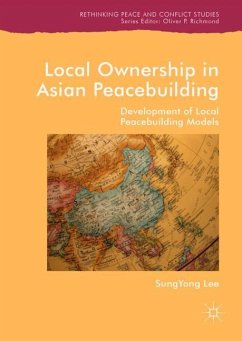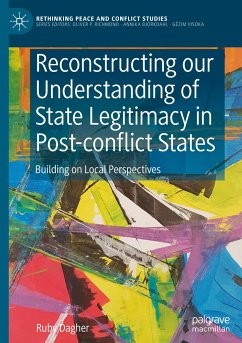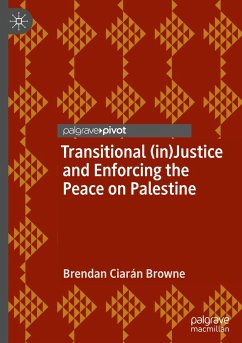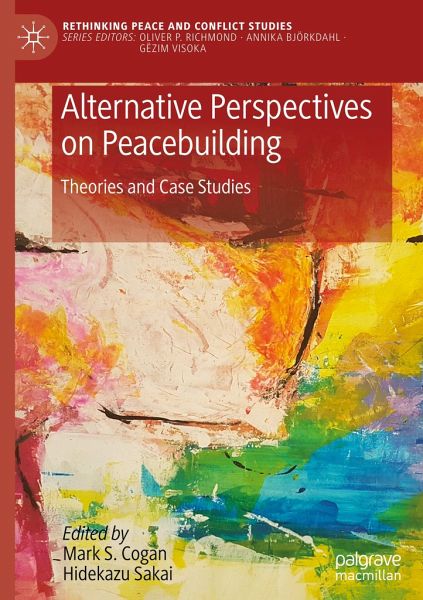
Alternative Perspectives on Peacebuilding
Theories and Case Studies
Herausgegeben: Cogan, Mark S.; Sakai, Hidekazu

PAYBACK Punkte
42 °P sammeln!
This book analyses and furthers the academic debates on post-liberal peacebuilding, through a number of conceptual, theoretical and empirical research outputs. Part I includes a review of how the recent discourse on peacebuilding has evolved, and three conceptual/theoretical perspectives relevant to post-liberal peacebuilding. In particular, the editors propose the concept of bespoke peacebuilding to articulate key features of new peacebuilding models. Part II introduces five case studies that present how alternative peacebuilding models are being shaped (or can be shaped) in practice. Essenti...
This book analyses and furthers the academic debates on post-liberal peacebuilding, through a number of conceptual, theoretical and empirical research outputs. Part I includes a review of how the recent discourse on peacebuilding has evolved, and three conceptual/theoretical perspectives relevant to post-liberal peacebuilding. In particular, the editors propose the concept of bespoke peacebuilding to articulate key features of new peacebuilding models. Part II introduces five case studies that present how alternative peacebuilding models are being shaped (or can be shaped) in practice. Essential reading for scholars and students in Peace and Conflict Studies, International Relations, and International Security Studies.
Chapter 8 is available open access under a Creative Commons Attribution 4.0 International License via link.springer.com.
Chapter 8 is available open access under a Creative Commons Attribution 4.0 International License via link.springer.com.





